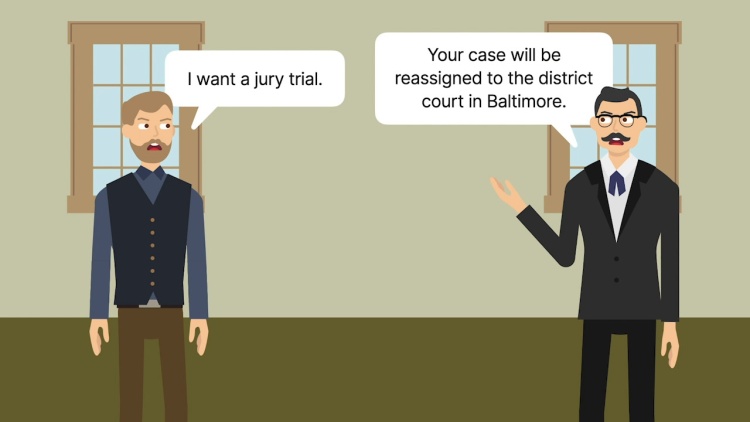United States v. Goodwin
United States Supreme Court
457 U.S. 368, 102 S.Ct. 2485, 73 L.Ed.2d 74 (1982)
- Written by Robert Schefter, JD
Facts
Goodwin (defendant) was charged by the United States government (plaintiff) with several misdemeanor and petty offenses after striking a federal park officer with his vehicle and fleeing after a traffic stop. Plea negotiations took place with a Department of Justice attorney, but Goodwin demanded a jury trial in district court. An assistant U.S. attorney took over the prosecution in district court and added a felony charge for assaulting a federal officer. A jury convicted Goodwin of the felony and one misdemeanor count. Goodwin moved to have the verdict set aside due to prosecutorial vindictiveness, alleging that the felony charge had been added as retaliation for Goodwin’s jury-trial demand. The district court denied the motion, finding that the prosecutor had no retaliatory intent. The court of appeals reversed, holding that although there was no actual vindictiveness, there existed a presumption of vindictiveness in the absence of evidence that the felony could not have been brought prior to the jury-trial demand. The United States Supreme Court granted certiorari.
Rule of Law
Issue
Holding and Reasoning (Stevens, J.)
Concurrence (Blackmun, J.)
Dissent (Marshall, J.)
What to do next…
Here's why 899,000 law students have relied on our case briefs:
- Written by law professors and practitioners, not other law students. 47,000 briefs, keyed to 994 casebooks. Top-notch customer support.
- The right amount of information, includes the facts, issues, rule of law, holding and reasoning, and any concurrences and dissents.
- Access in your classes, works on your mobile and tablet. Massive library of related video lessons and high quality multiple-choice questions.
- Easy to use, uniform format for every case brief. Written in plain English, not in legalese. Our briefs summarize and simplify; they don’t just repeat the court’s language.





